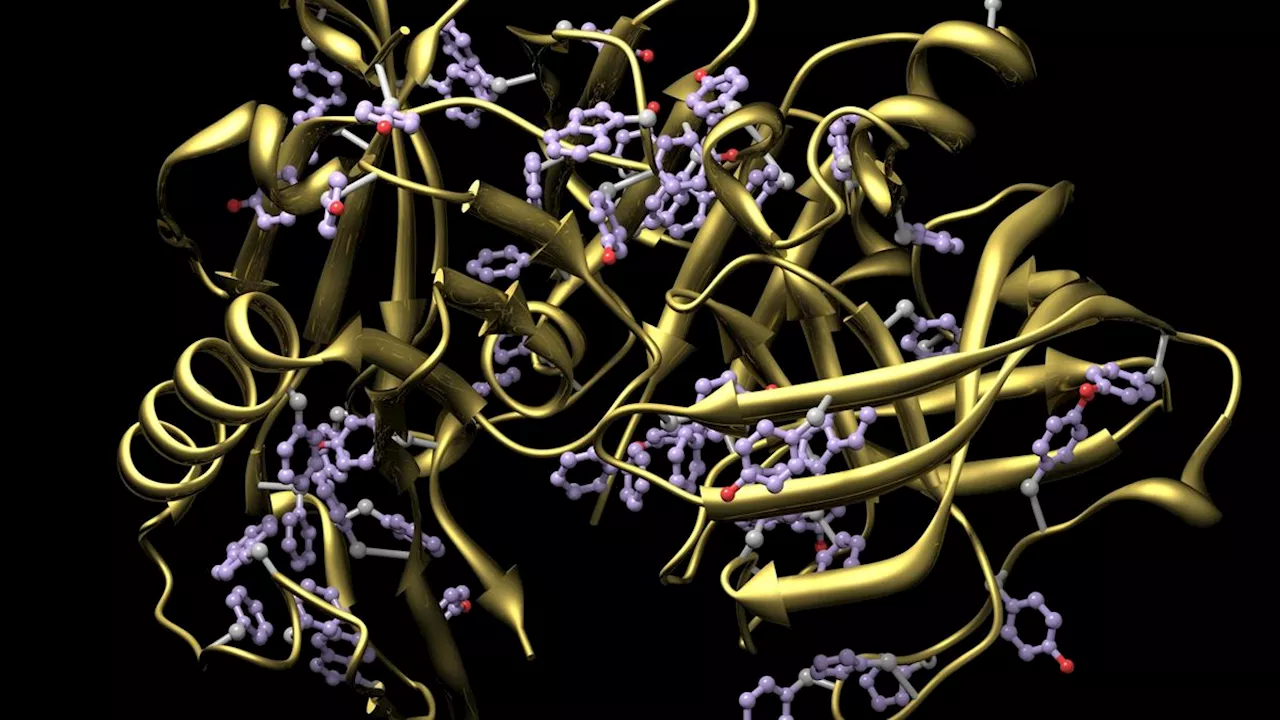A new mega-database catalogs the effects of over 500,000 genetic mutations on protein stability. This could lead to the development of personalized drugs targeting the root cause of genetic diseases.
The ultimate action-packed science and technology magazine bursting with exciting information about the universe. Engaging articles, amazing illustrations & exclusive interviews. For the first time, scientists have created a database that details how hundreds of thousands of genetic mutations disrupt the function of proteins, leading to disease. Scientists have created a mega-database revealing how half a million different DNA mutations generate errors in proteins in humans.
The researchers hope that the database will be used to develop new, personalized drugs that directly reverse the mutations' effects. Each building block of a protein — called an amino acid — is key to its function, and thus, swapping around the amino acids can essentially break a protein. 'Missense' mutations — changes in a single amino acid — are particularly common. However, in many cases, it's not entirely clear how these mutations affect the structure and function of proteins and thus cause disease. Without this understanding, it is tricky to develop targeted treatments for genetic disorders without altering the genome itself, according to the authors of a new study published Jan. 8 in the journal 'Nature'.\'Depending on what is happening to the protein, if you were to design a drug to try to fix the disease, then the approach would be completely different depending on the individual mutation that you are considering,' said study co-author, Dr. Boris Beltran. To tackle this issue, Beltran and colleagues created an enormous database that catalogs the effect of more than 500,000 missense mutations on the stability of 522 protein 'domains', meaning the regions of proteins that are key to their function. They call the database a human 'domainome', and they built it by systematically triggering mutations in proteins in the lab. They then transferred the mutants into yeast cells and monitored the effects. In the new study, the team especially homed in on 621 missense mutations from the database that were already known to cause diseases in humans. They found that 60% of these mutations made affected proteins less stable. Unstable proteins are prone to misfolding, like origami, proteins must be folded a particular way to reach their intended form. Misfolded proteins can accumulate within cells, potentially causing damage, or simply not functioning properly. The team who created the database hope that it will one day be used to develop personalized treatments for genetic diseases. In the lens of the eye, for example, crystallin proteins maintain transparency. In the new study, Beltran and colleagues discovered that 72% of these mutations destabilize the crystallin proteins, increasing the odds that they clump together and form cloudy areas in the lens. Rather than causing instability, some missense mutations led to different changes in proteins. For example, some of the mutations behind certain types of cancer make proteins more active. Although the first and biggest database of its kind, so far, it covers only 2.5% of known human proteins, so more work is needed to expand it, Beltran acknowledged. More research will also be needed to determine if the effects seen in isolated domains also show up in full-size proteins. The team's ultimate goal is to build a database that's useful for predicting the effect of any mutation on protein stability, Beltran said. Such a tool could theoretically enable scientists to develop better drugs for genetic diseases that target the faults in proteins that drive the conditions
Genetics Proteins Mutations Disease Personalized Medicine
United States Latest News, United States Headlines
Similar News:You can also read news stories similar to this one that we have collected from other news sources.
 Savannah Guthrie Reveals 2024 Holiday Card and Reveals Family DogHoda Kotb and Jenna Bush Hager share their family holiday cards, featuring a special surprise on the back of Jenna’s!
Savannah Guthrie Reveals 2024 Holiday Card and Reveals Family DogHoda Kotb and Jenna Bush Hager share their family holiday cards, featuring a special surprise on the back of Jenna’s!
Read more »
 Classic Mega Man Games Cheaper Than Ever Before in New SaleGrab a whole slew of Mega Man games with a huge sale on both Mega Man Legacy Collection and Mega Man Legacy Collection 2.
Classic Mega Man Games Cheaper Than Ever Before in New SaleGrab a whole slew of Mega Man games with a huge sale on both Mega Man Legacy Collection and Mega Man Legacy Collection 2.
Read more »
 Florida Invests in Instructional Materials Database, Raising Concerns from Parent GroupsThe state of Florida is allocating nearly $15.6 million to develop a cloud-based platform for viewing K-12 instructional materials. While the initiative aims to streamline access for parents and educators, some parent groups, like Public School Defenders, criticize the expense and worry about potential book bans. They argue that the funds could be better utilized to address critical needs in schools, such as providing teachers with resources and support, ensuring access to books and mental health counselors.
Florida Invests in Instructional Materials Database, Raising Concerns from Parent GroupsThe state of Florida is allocating nearly $15.6 million to develop a cloud-based platform for viewing K-12 instructional materials. While the initiative aims to streamline access for parents and educators, some parent groups, like Public School Defenders, criticize the expense and worry about potential book bans. They argue that the funds could be better utilized to address critical needs in schools, such as providing teachers with resources and support, ensuring access to books and mental health counselors.
Read more »
 FAA Drone Database Remains Unavailable to Local Law Enforcement Amid Surge in SightingsDespite requiring drones to have Remote ID technology for a year, the FAA hasn't provided local law enforcement with access to a database that could identify the source of suspicious drone activity.
FAA Drone Database Remains Unavailable to Local Law Enforcement Amid Surge in SightingsDespite requiring drones to have Remote ID technology for a year, the FAA hasn't provided local law enforcement with access to a database that could identify the source of suspicious drone activity.
Read more »
 Black Publisher Receives Historic Award, Highlights Gang Database ConcernsA Black woman publisher receives a historic award, highlighting the issue of racial profiling and the impact of the gang database on innocent individuals.
Black Publisher Receives Historic Award, Highlights Gang Database ConcernsA Black woman publisher receives a historic award, highlighting the issue of racial profiling and the impact of the gang database on innocent individuals.
Read more »
 Withdrawn Preprints Database Aims to Improve Research QualityA new database of over 14,000 withdrawn arXiv preprints aims to identify common reasons for removal and help develop tools to prevent future errors.
Withdrawn Preprints Database Aims to Improve Research QualityA new database of over 14,000 withdrawn arXiv preprints aims to identify common reasons for removal and help develop tools to prevent future errors.
Read more »
